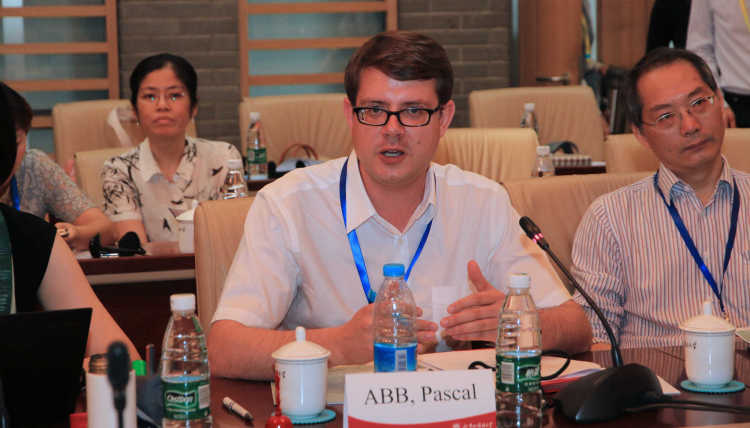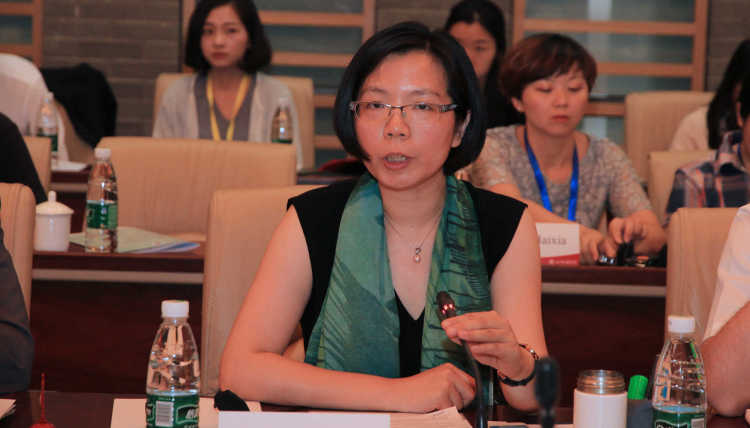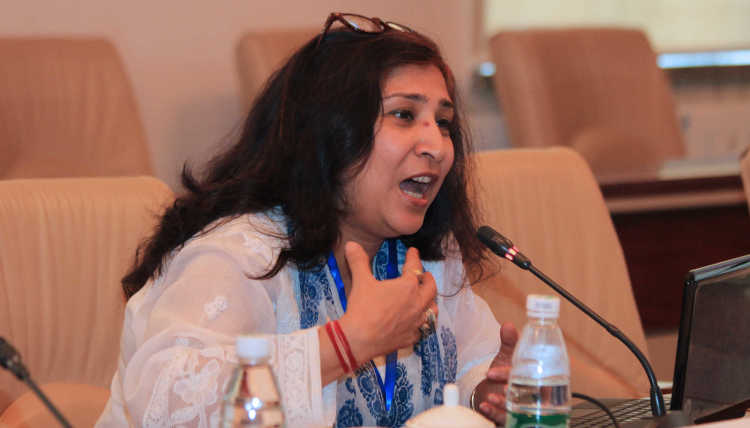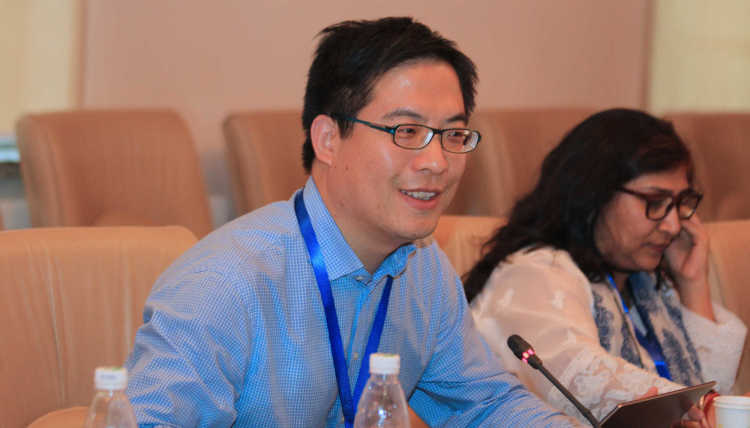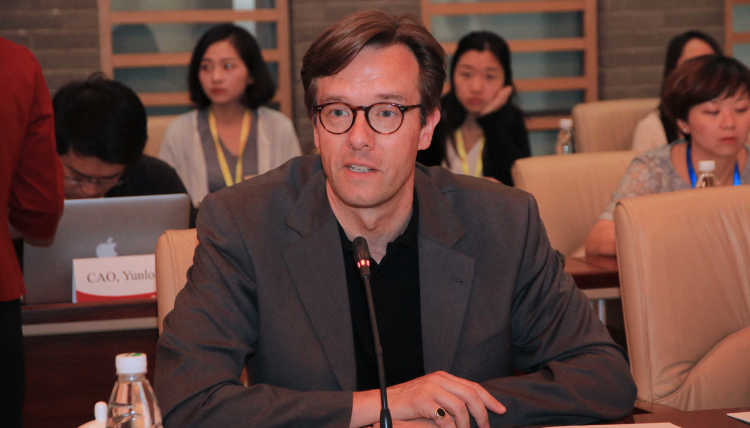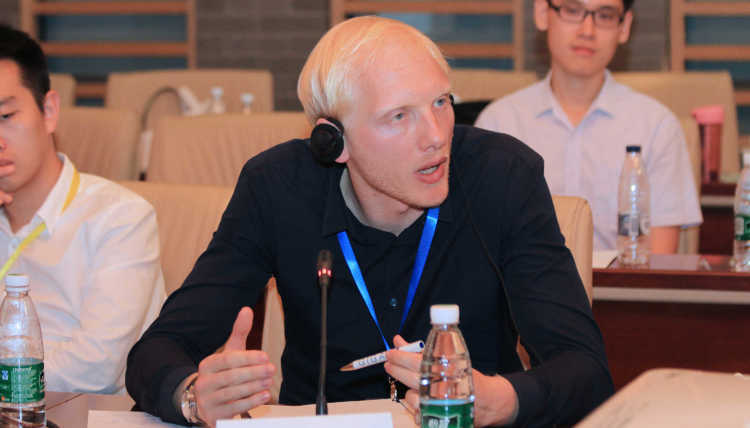- Startseite
- Presse
- Joint Academic Workshop on Area Studies
Kurz notiert | 27.06.2017
Joint Academic Workshop on Area Studies
Workshop constitutes first in a series of events to contribute to the transfer of social science concepts.
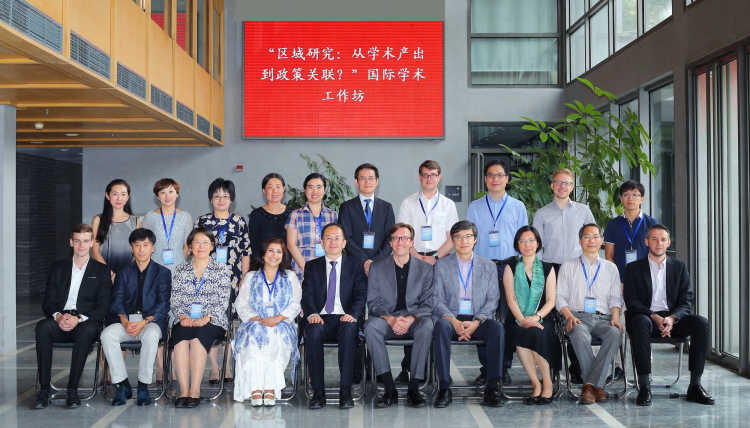
On 17 June 2017, the German Institute for Global and Area Studies (GIGA) and Beijing Foreign Studies University (BFSU) held a joint academic workshop entitled “Area Studies: From Academic Knowledge Production to Policy Relevance?” Both in the West and in Asia, the development of area studies has been closely connected to the information needs of state actors, with a boom in academic research following the expansion of a given state’s overseas connections and interests. Our aim for this workshop was to compare how scholars in each region understand their role in relation to the academic field, disciplinary social sciences, the policy community, and the general public; to determine how they deal with the challenges and tensions arising from the different demands of each group; and to identify best practices to take the field forward and enhance the value it generates for other, related enterprises.
Both the GIGA and BFSU stand out for the variety of their area studies expertise, each covering several major world regions and housing specialists with strong disciplinary backgrounds boasting deep knowledge on specific countries. This expertise has allowed both institutions to provide not only high-quality academic research, but also sought-after policy advice – especially in the field of foreign policy, by way of direct consultations, research projects on behalf of ministries, staff secondments, and tutoring and training for present and future diplomatic personnel.
The workshop was the first in a series of planned events to reach out to former visiting scholars at the GIGA, as part of the institute’s research alumni strategy funded by the Alexander von Humboldt Foundation. This workshop series intends to contribute to the transfer of social science concepts – between various world regions, between academic disciplines, and between academia and society at large. The events are taking place at the GIGA Research Platforms in Asia, Latin America, Africa, and the Middle East and actively involve former visiting scholars. We are grateful for the participation of three GIGA research alumni – Wu Jiang of BFSU, Meena Singh Roy of the Institute for Defence Studies and Analyses in New Delhi, and Niu Haibin of the Shanghai Institutes for International Studies – in addition to other colleagues from GIGA cooperation partners in China and Korea. Additionally, the workshop was attended by representatives from the Beijing offices of the Konrad Adenauer Foundation and Hanns Seidel Foundation, whose participation serves to bolster our links with the policy community.
Over the course of the workshop, participants provided timely input on three topical clusters: the origins and trajectories of area studies in Asia and the West; current challenges faced by the field in its scholarly practice and interactions with non-academic audiences; and the specific task of providing input for policymaking, mainly in the field of foreign policy. The first panel reviewed the historical development of the field both as a global enterprise and in terms of the specific trajectories and legacies of area studies in different Asian and Western contexts. In the second panel, participants addressed challenges such as the growing disconnect between expert and public opinion and possible strategies to overcome this, the training of a new generation of area experts, and the field’s interactions with disciplinary studies. Finally, the third panel covered the practical relevance of area studies, with a specific view towards informing foreign policy. This included a review of current developments in China as the country embarks on its ambitious “One Belt, One Road” initiative, as well as German and Chinese perspectives on the practice of providing policy consultation.
The workshop showed that despite differences in the academic and political contexts, area studies communities in Asia and Europe demonstrate great similarity in the way they define their roles within the academic and practical knowledge regimes in which they are embedded. Scholarly ties, such as those established by the GIGA’s cooperation agreements and its new research alumni initiative, are crucial for conducting exchanges about concepts and issues of global reach, as regional perspectives may differ and need to be understood as a prerequisite for collective action. Ideally, these relationships can also serve as the basis for future joint research that crosses area boundaries and leverages the value of the comparative method to create more generalisable insights that may also be used to inform disciplinary studies.
When it comes to the provision of policy advice, area studies scholars show a great willingness to make their knowledge available to practitioners, are mindful of the fact that this often requires a different skill set than the one used for purely academic research, and are eager to embrace their public responsibilities. However, this willingness needs to be matched by a commitment to the value of academic inquiry on the part of decision makers and the public, whose acknowledgement of the necessity of obtaining second opinions on current policy projects from outside experts is of great importance.
Experte
Experte
